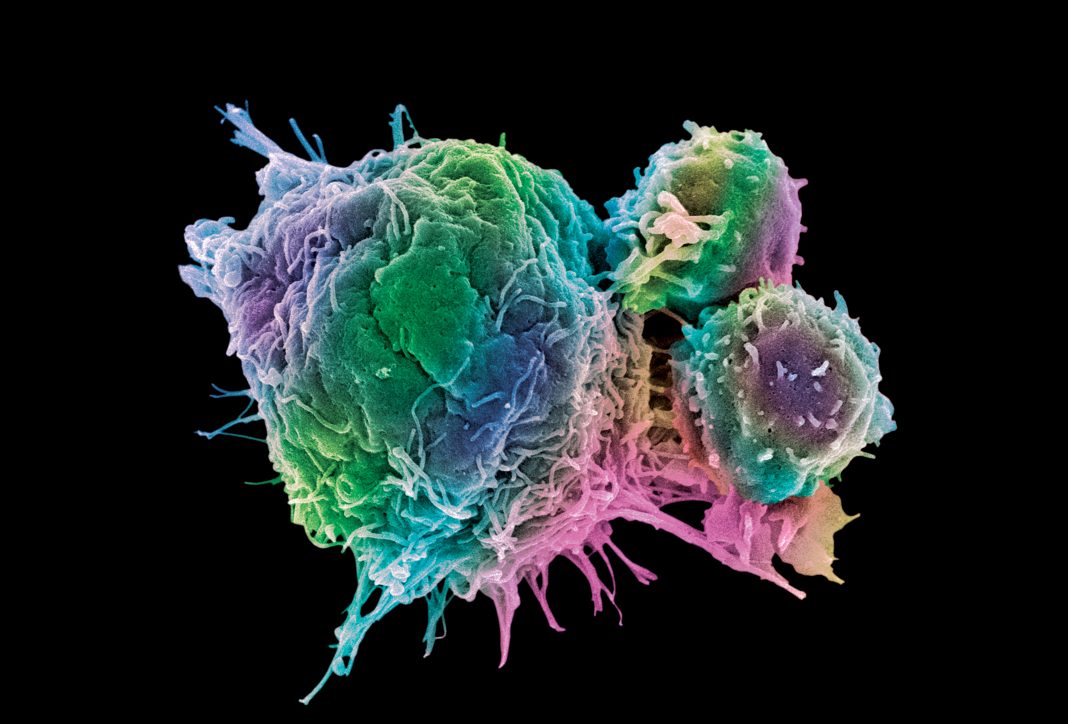Scientists from Washington University School of Medicine in St. Louis, the Broad Institute of MIT and Harvard, Brigham Young University, and other institutions have published several papers documenting their analysis of various driver proteins across multiple cancer types.
The institutions are all part of the National Cancer Institute’s Clinical Proteomic Tumor Analysis Consortium (CPTAC) which identifies and studies cancer-driving proteins and related biological processes to better diagnose, treat, and prevent the disease. The results of these current studies suggest several possible targets for novel therapies that can successfully block cancers’ growth or perhaps activate the immune system to combat the effects of abnormal proteins. Full details of their work are presented in four papers published in Cell and Cancer Cell.
“In our efforts to develop better cancer therapies, this new analysis of the proteins driving tumor growth is the next step after cancer genome sequencing,” Li Ding, PhD, professor of medicine at Washington University and a senior author of the study, said in a statement. “Through our past work sequencing the genomes of cancer cells, we identified almost 300 genes driving cancer. Now, we are studying the details of the machinery these cancer genes set in motion—the proteins and their regulatory networks that actually do the work of causing uncontrolled cell division.”
In one of the papers titled, “Pan-cancer proteogenomics connects oncogenic drivers to functional states,” the researchers described a study that quantified the effects of various cancer drivers at the RNA, protein, and phosphoprotein levels. Among other findings, the study highlighted some driver protein pathways that were shared by 10 cancer types, as well as genetic changes that were associated with tumor-specific protein-protein interactions.
A second paper, titled “Pan-cancer analysis of post-translational modifications reveals shared patterns of protein regulation,” focused on results from studying protein post-translational modifications associated with cancer processes. The scientists identified changes in protein acetylation and phosphorylation that are associated with tumor growth in different cancer types and subtypes. Specifically, they demonstrated how these modifications impact things like DNA repair and immune response in cancers.
Another group focused on epigenetic modifications associated with tumor development. In that paper, titled “Integrative multi-omic cancer profiling reveals DNA methylation patterns associated with therapeutic vulnerability and cell-of-origin,” the researchers explained that they profiled 687 tumors to identify “aberrant methylation associated with RNA and protein abundance changes.” They identified specific methylation events that drive changes in RNA and protein expression in different cancer subtypes, and some druggable genes that could be targets for tailored therapies.
The final paper summarized the work of CPTAC and the resources that the group has collated and is making available to the broader research community. Titled “Proteogenomic data and resources for pan-cancer analysis,” this paper highlights the group’s efforts to generate and harmonize genomic, transcriptomic, proteomic, and clinical data from over 1,000 tumors across 10 cancer types. The analysis spanned diverse cancer types including lung, colorectal, ovarian, kidney, head and neck, brain, and more. The paper also detailed some of the challenges with integrating and analyzing multi-omics datasets for this kind of analysis.
The pan-cancer proteogenomic dataset will be publicly available from the NCI Cancer Research Data Commons repositories.


